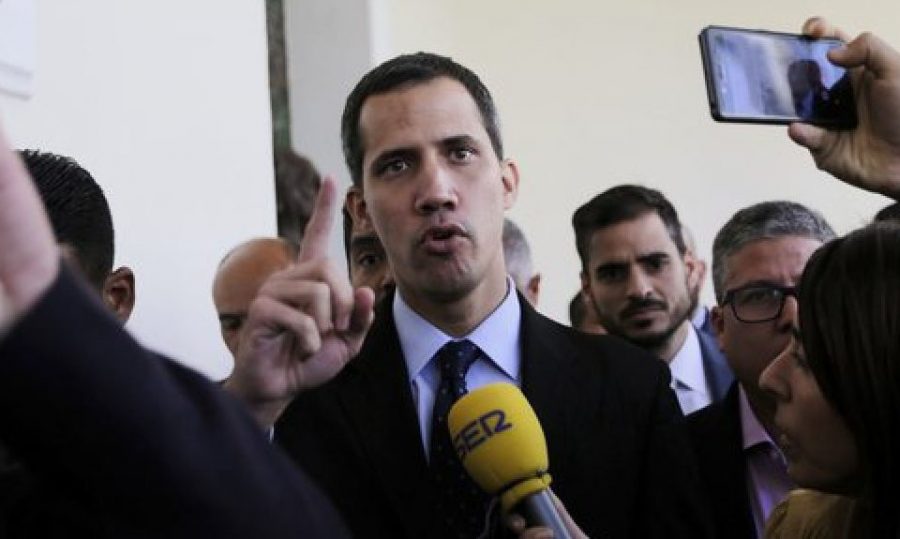Presidency of Venezuela disputed between Guaido and Maduro
Jan 31, 2019
Juan Guaido and Nicolas Maduro continued this week to compete for presidential legitimacy while transition of power looms in Venezuela.
Last week, Guaido, the 35-year-old Venezuelan opposition leader, declared that he would assume presidential power after Maduro’s supposed tampering with last year’s election that returned him to the presidency.
As president of the National Assembly, Venezuela’s legislature, Guaido cited two articles that allow him to act as temporary president and issue a call for new elections, The Associated Press reports.
A power struggle commenced, and both Guaido and Maduro now have to rally support for presidential legitimacy.
On Sunday, demonstrating the importance of military support, Guaido supporters distributed leaflets to soldiers that guaranteed amnesty if they help to oust Maduro from the presidency, according to The Associated Press. Reportedly, opposition lawmaker Ivlev Silva said “the people of Venezuela believe in each one of you” as he handed out the leaflets.
As Guaido attempts to win military support, he has directly addressed the public on demonstrating and resisting the current socialist president.
The Associated Press reports that Guaido called for Venezuelans to organize on Jan. 23. for a two-hour, non-violent protest, and again on Jan. 26 for a world-wide demonstration. These protests could prove disastrous, since Maduro’s military does not shy away from firing tear gas and bullets on demonstrators. Two dozen protestors have died since Jan. 16.
Maduro, who up to this point has seemed to hold military backing, was spotted wearing tan fatigues at military exercises. The Associated Press also noted that Maduro has appeared on state TV addressing soldiers and asking them if they are plotting a coup with the “imperialist” United States.
Maduro’s resolve ushers in yet another key factor in establishing presidential legitimacy; namely, international recognition.
France, Britain, Spain and Germany plan to recognize Guaido as president only if a new presidential election is not held within eight days, The Associated Press claims.
The New York Times reports that the Organization of American States, an international organization that includes most states in the Americas, also sides with Guaido.
A key member of this group, the United States, has been unequivocal in its stance toward the attempt at regime change.
“The people of Venezuela have courageously spoken out against Maduro and his regime and demanded freedom and the rule of law,” President Donald Trump stated last week, The New York Times reported.
The United States has chosen to aid Guaido’s transitional government resolutely, and has even begun a campaign to oust the “strongman” Maduro, whose regime Secretary of State Mike Pompeo has labeled “illegitimate,” “morally bankrupt” and “profoundly corrupt.”
On Jan. 28, The New York Times reported that the United States had instituted an oil embargo from the Venezuelan state-owned oil company, Petroleos de Venezuela, also known as PDVSA.
With the Venezuelan economy already in poor shape, this embargo on oil is expected to cost the Venezuelan government $11 billion in export loses over the next year, The New York Times further noted.
Editor’s Note: Information from The Associated Press and The New York Times was used in this report.












